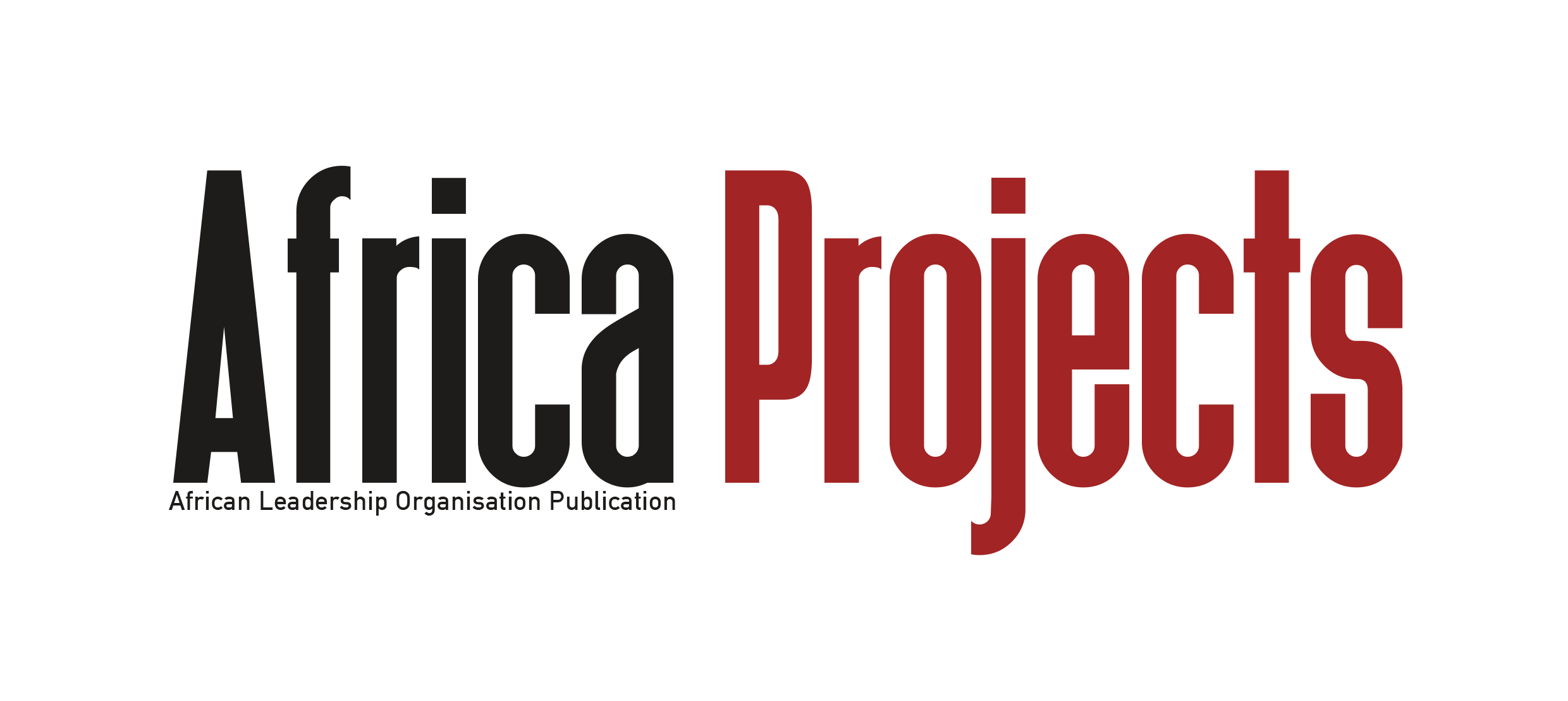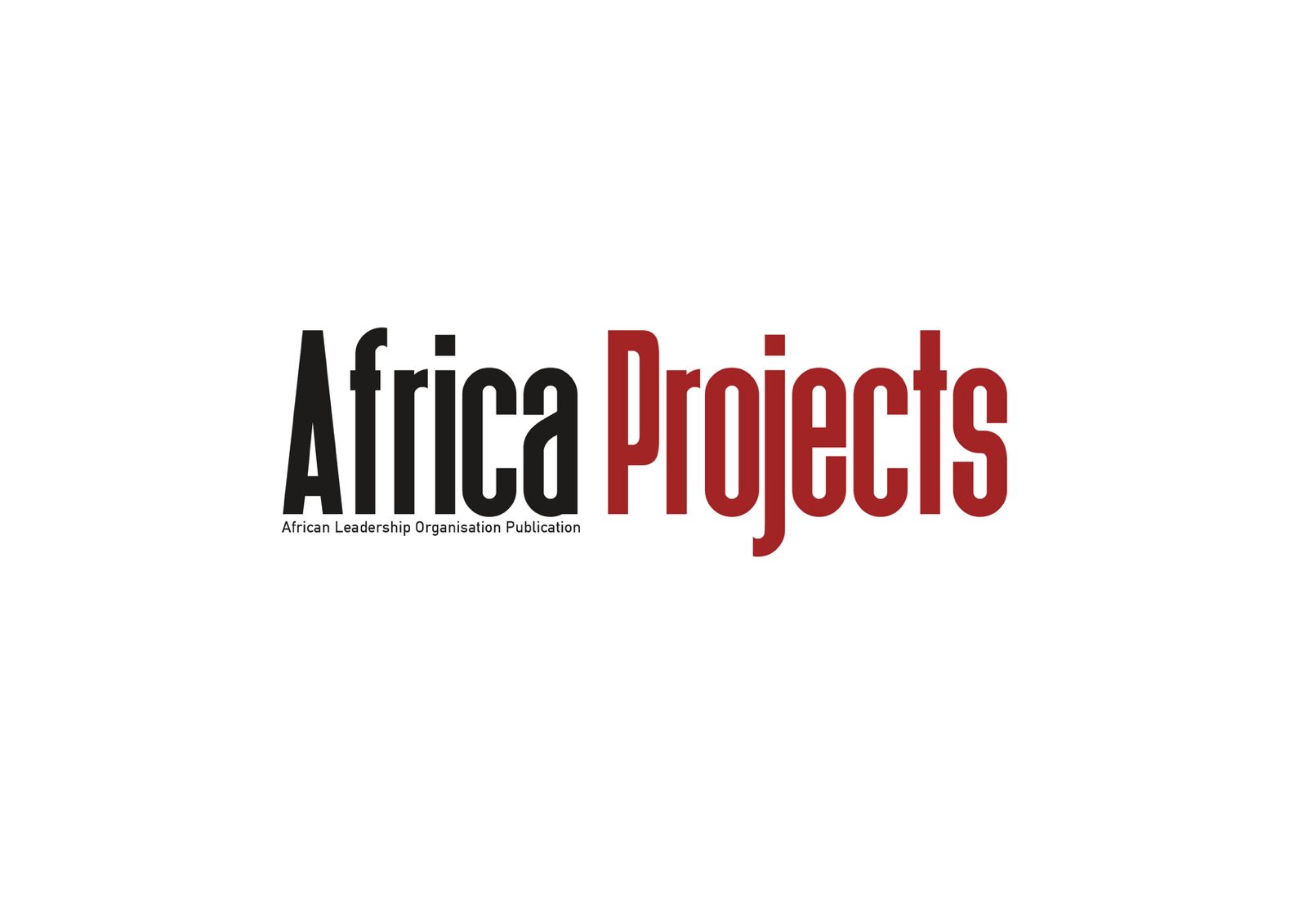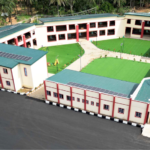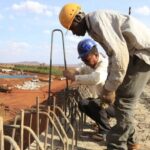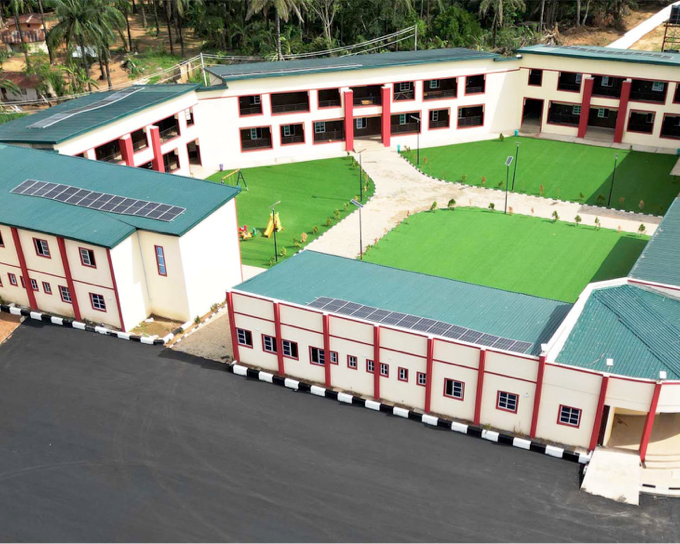- Home
- Features
- Startup Zone
- Projects
- Policies
- Shop
- Policies
- Projects
- Startup Zone
- Country Spotlight
- Analysis
- Tech
- Policies
- Projects
- Startup Zone
- Country Spotlight
- Analysis
- More
- Beyond the Kalashnikov: Africa’s Shift Toward Technology-Driven Warfare
- Afrail Express: Uniting a Continent on Rails
- AFRICA’S ENERGY CORRIDORS: CONNECTING POWER, PEOPLE, AND PROSPERITY
- Startup Lions Campus: Empowering Kenya’s Digital Generation
- L’Art de Vivre’s Le Paradis de Mahdia: Tunisia’s Model for Sustainable Luxury
- The Lobito Corridor: Rewiring Africa’s Trade Arteries Through Strategic Infrastructure
- AFRICA’S GREEN ENERGY TRANSITION: A BEACON OF HOPE FOR CLIMATE ACTION
- Dangote Refinery: Showcasing Africa’s Project Success Story
- AFRICA GREEN ECONOMY: ALL YOU NEED TO KNOW
- The Most Important Amicus Brief in the History of the World
- The Rise of Indigenous UAVs: Africa’s Drone Capabilities in Warfare and Surveillance
- AFRICA’S LARGEST OIL PRODUCERS: A COMPREHENSIVE OVERVIEW
- Beyond the Kalashnikov: Africa’s Shift Toward Technology-Driven Warfare
- Afrail Express: Uniting a Continent on Rails
- AFRICA’S ENERGY CORRIDORS: CONNECTING POWER, PEOPLE, AND PROSPERITY
- Startup Lions Campus: Empowering Kenya’s Digital Generation
- L’Art de Vivre’s Le Paradis de Mahdia: Tunisia’s Model for Sustainable Luxury
- The Lobito Corridor: Rewiring Africa’s Trade Arteries Through Strategic Infrastructure
- AFRICA’S GREEN ENERGY TRANSITION: A BEACON OF HOPE FOR CLIMATE ACTION
- Dangote Refinery: Showcasing Africa’s Project Success Story
- AFRICA GREEN ECONOMY: ALL YOU NEED TO KNOW
- The Most Important Amicus Brief in the History of the World
- The Rise of Indigenous UAVs: Africa’s Drone Capabilities in Warfare and Surveillance
- AFRICA’S LARGEST OIL PRODUCERS: A COMPREHENSIVE OVERVIEW
- Beyond the Kalashnikov: Africa’s Shift Toward Technology-Driven Warfare
- Afrail Express: Uniting a Continent on Rails
- AFRICA’S ENERGY CORRIDORS: CONNECTING POWER, PEOPLE, AND PROSPERITY
- Startup Lions Campus: Empowering Kenya’s Digital Generation
- L’Art de Vivre’s Le Paradis de Mahdia: Tunisia’s Model for Sustainable Luxury
- The Lobito Corridor: Rewiring Africa’s Trade Arteries Through Strategic Infrastructure
- Startup Zone
Top Insights
Unlocking Investment in Africa’s Oil and Gas Industry

Africa’s oil and gas landscape is undergoing a transformative phase, characterised by evolving investment dynamics, pioneering financing mechanisms, new explorations, and a growing awareness of the continent’s vast hydrocarbon potential. With significant reserves and untapped opportunities, Africa is poised to become a global oil and gas powerhouse, addressing both local energy needs and international demand. Innovations in financing and infrastructure development, alongside landmark agreements like those with the African Export-Import Bank (Afreximbank) and the impending establishment of the African Energy Bank (AEB), highlight the strategic intent to unlock investment in this critical sector.
Recent developments underscore the continent’s commitment to advancing its oil and gas industry, which is essential for economic growth, energy security, and sustainable development. The emergence of discoveries, such as the Venus prospect in Namibia, represents just one facet of the broader narrative that encompasses Africa’s resource potential. As various stakeholders strive to navigate funding challenges, foster local content initiatives, and promote investment-friendly regulatory frameworks, the future of Africa’s oil and gas sector appears increasingly optimistic.
READ ALSO: Pipeline Politics: The Future of Africa’s Oil and Gas Infrastructure
This piece explores the mechanisms that are unlocking investment in Africa’s oil and gas industry, with a focus on recent developments, current high-impact projects, and the challenges that lie ahead.
Innovative Financing for Oil and Gas
The Role of Afreximbank
Afreximbank has emerged as a pivotal institution driving financial initiatives aimed at bolstering Africa’s oil and gas industry. The recent $100 million agreement with JE Energy demonstrates the potential of innovative financing structures to foster exploration and development across the continent. Afreximbank’s involvement signifies a growing recognition of the need for dedicated financial solutions that cater to Africa’s distinct energy landscape.
As traditional Western financial institutions become increasingly cautious due to environmental concerns, Afreximbank positions itself as a champion of sustainable energy development. This strategic pivot aims to mobilise capital for projects that enhance energy security while addressing local socio-economic challenges. Through targeted funding initiatives, the bank is playing a crucial role in bridging the significant investment gap hindering the oil and gas sector.
Establishment of the African Energy Bank
A landmark development in Africa’s energy sector is the establishment of the African Energy Bank, with an initial capital injection of $5 billion. This financial institution seeks to address the funding challenges faced by oil and gas projects on the continent, especially as traditional sources of capital become more risk-averse. The AEB represents a significant commitment from African nations—including Nigeria, Angola, and Ghana—to develop their energy resources sustainably.
With contributions from member states of the African Petroleum Producers Organisation (APPO), the AEB aims to provide tailored financial solutions that understand the complexities of African energy projects. By meeting the unique needs of the continent’s energy sector, the bank is expected to facilitate increased investment and accelerate project development across Africa.
High-impact Projects Driving Investment
TotalEnergies’ Venus Appraisal – Namibia
TotalEnergies is ramping up its appraisal efforts in Namibia’s Block 2913B following the massive Venus-1 discovery in 2022. With estimates suggesting that Venus could contain one of the largest oil accumulations ever discovered in sub-Saharan Africa, the stakes are high. In 2025, TotalEnergies plans to conduct further drilling and well testing, which will confirm reserve estimates and inform development planning.
The commercial viability of the Venus prospect could catalyse a wave of investment in infrastructure and production facilities, positioning Namibia as a significant player in the global oil landscape. This development exemplifies how discoveries can unlock substantial economic opportunities and enhance energy security.
Azule Energy’s Exploration Wells – Angola
In Angola, Azule Energy—a joint venture between BP and Eni—is intensifying exploration efforts to sustain and expand oil production. The company’s 2025 drilling program focuses on multiple offshore wells in the Lower Congo and Kwanza Basins, which are believed to harbour high-potential prospects. As Angola grapples with declining output from ageing fields, these drilling campaigns will be pivotal in identifying new reserves and extending the production horizon.
A successful outcome from Azule Energy’s exploration wells would not only bolster Angola’s standing as a leading oil producer in Africa but also generate renewed interest from investors in its offshore acreage. The strategic initiatives undertaken by the company signify Angola’s commitment to enhancing production and diversifying its energy portfolio.
Africa Oil Corp.’s Deepwater Activity – Nigeria
Nigeria’s offshore oil sector continues to show promise, with Africa Oil Corp. advancing drilling operations at the significant Akpo and Egina fields. Following a successful infill production well at Akpo, the company’s plans for 2025 include seismic acquisition at the Agbami field and a scheduled drilling campaign set for 2026. These initiatives are geared towards optimising resource recovery and enhancing production capacity.
As Nigeria remains sub-Saharan Africa’s largest oil producer, the ongoing developments in its deepwater fields reflect the country’s potential for vibrant growth and sustainable energy production. However, the success of these projects will also depend heavily on the strategic financing and investment decisions made in the coming years.
ReconAfrica’s Onshore Drilling – Namibia
While offshore exploration dominates headlines, the onshore drilling activities in Namibia’s Kavango Basin, led by Canadian company ReconAfrica, also deserve attention. The company is pursuing a drilling program aimed at confirming the existence of a working petroleum system in this frontier basin.
Although early drilling results have been inconclusive, new wells could provide the breakthrough needed to unlock Namibia’s onshore hydrocarbon potential. If successful, this endeavour would significantly contribute to Africa’s energy resources while diversifying the continent’s exploration portfolio.
Eni’s Sirte Basin Program – Libya
In Libya, Eni is committed to expanding its upstream operations by focusing on drilling new offshore wells in the Mediterranean. Scheduled for 2025, the company’s plans involve exploring previously identified prospects in the Sirte Basin that exhibit high hydrocarbon potential. This strategic move is intended to enhance Libya’s production and meet its energy security needs.
The resurgence of exploration activities in Libya, once curtailed by political turmoil, signals a renewed optimism and potential for economic growth within the region. Eni’s investments reflect the importance of maintaining production levels while capitalising on underexplored resources.
Challenges Facing Africa’s Oil and Gas Sector
Environmental Opposition
Despite the clear economic potential of Africa’s oil and gas sector, it faces mounting opposition from environmental groups and financial institutions advocating for a shift towards renewable energy. Concerns regarding climate change and sustainability have prompted many investors to reconsider their commitments to fossil fuel projects, which has compounded funding challenges across the continent.
The African Energy Chamber (AEC) has emerged as a vocal advocate for the oil and gas industry’s role in combating energy poverty in Africa. The AEC calls for a balanced approach that recognises the continent’s unique energy dynamics while embracing environmental considerations.
Geopolitical Instability
The geopolitical landscape in Africa also poses risks to the oil and gas sector. Political instability in certain regions, coupled with regulatory challenges, can create uncertainty for investors. For instance, disruptions due to conflicts can hinder exploration and production efforts, ultimately affecting investment attractiveness.
Investors are increasingly cautious about engaging in regions perceived as unstable. Mitigating these risks will require proactive engagement between governments and industry players to ensure transparent and predictable regulatory frameworks that encourage investment.
Infrastructure Gaps
While innovations in financing and investment agreements are making strides in addressing funding challenges, infrastructural deficits remain a significant barrier to unlocking Africa’s oil and gas potential. Limited transportation networks, inadequate refining capacity, and insufficient energy infrastructure are impediments to optimal resource exploitation.
Investment in infrastructure is essential not only for enhancing production capabilities but also for improving access to regional markets. Collaborative partnerships between governments and private investors can bridge these infrastructure gaps, allowing for a more integrated energy sector.
The Role of Conferences and Forums
African Energy Week 2025
Events such as the African Energy Week (AEW): Invest in African Energies 2025 play a vital role in shaping the future of Africa’s oil and gas sector. The upcoming conference, scheduled for September 29 to October 3 in Cape Town, will serve as a platform for industry stakeholders to discuss crucial issues surrounding investment, regulatory frameworks, and infrastructure development.
The AEW has historically facilitated transformative deals and continues to provide a space for dialogue between African nations and global financial institutions. By fostering partnerships and collaboration, the conference aims to align investment strategies with the continent’s energy ambitions.
Unlocking investment in Africa’s oil and gas industry is critical for achieving energy security, driving economic growth, and combating energy poverty across the continent. As innovative financing mechanisms and strategic initiatives gain momentum, Africa’s vast resource potential stands to be realised.
The establishment of the African Energy Bank and the active role of Afreximbank present new avenues for financing much-needed energy projects. Despite the challenges posed by environmental concerns and geopolitical instability, the trajectory appears promising with significant projects underway in various countries.
As the African Energy Chamber and other stakeholders advocate for the industry’s importance in achieving sustainable development, it is crucial to balance the urgency of energy transition with the continent’s immediate energy needs. By prioritising investment in oil and gas while fostering local content initiatives, Africa can pave the way for a prosperous energy future and secure its place as a global energy champion.
The coming years will undoubtedly shape the narrative of Africa’s oil and gas sector, and collaborative efforts among governments, financial institutions, and industry stakeholders will be essential in unlocking the true potential of this vital industry.
Recent Posts
Related Articles
Off-Grid Energy Expansion: The Leaders Powering Africa’s Future
Access to reliable electricity remains one of Africa’s most critical development challenges....
ByafricaprojectJanuary 13, 2026The Architects Designing Africa’s Next Landmark Buildings
The Architects Designing Africa’s Next Landmark Buildings Africa’s urban skyline is undergoing...
ByafricaprojectJanuary 12, 2026TRANSFORMING EDUCATION: THE NEW UNIVERSITY AND TECHNICAL CAMPUS PROJECTS ACROSS THE CONTINENT
Across Africa’s diverse landscape, a quiet revolution in higher education is taking...
ByafricaprojectDecember 22, 2025URBAN RENEWAL AND REGENERATION: BUILDING SMART, GREEN CITIES ACROSS AFRICA
Africa is urbanising faster than any region on the planet. By 2040,...
ByafricaprojectDecember 2, 2025